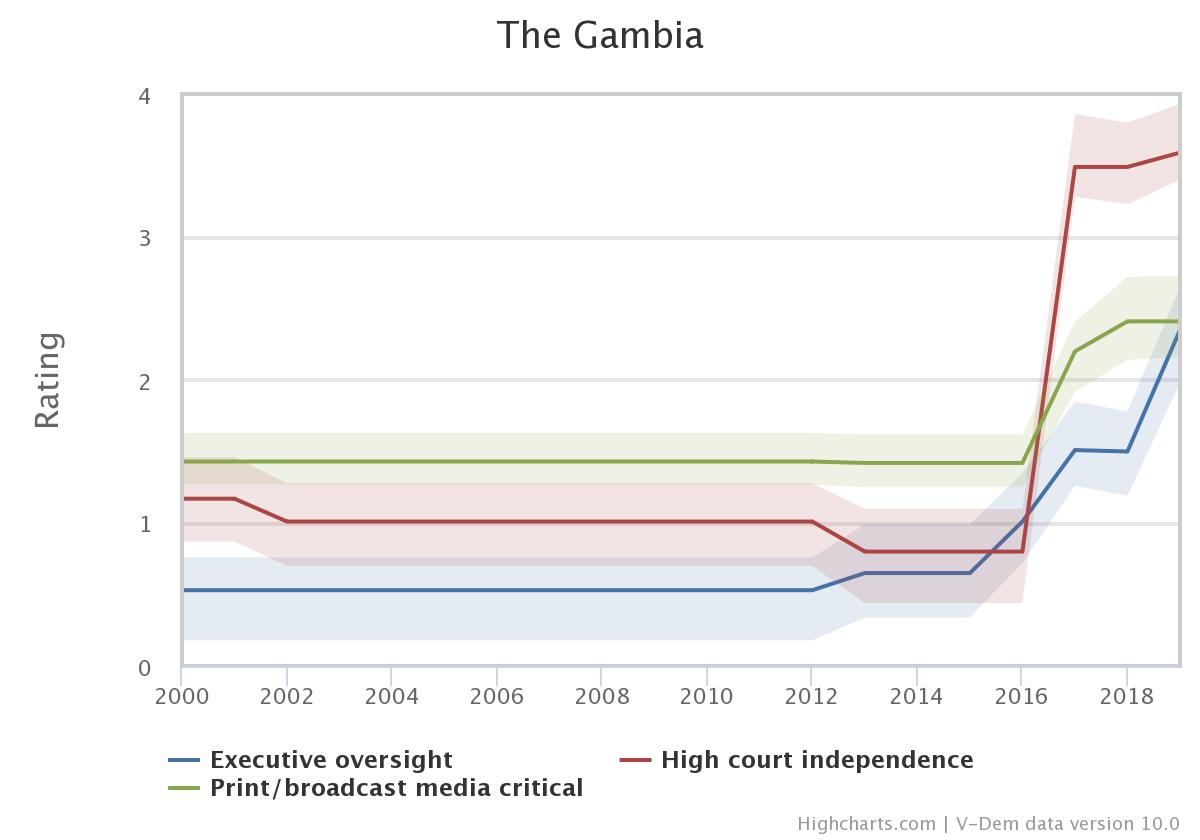The Future of Democracy in The Gambia
By: Ana Laura Ferrari
Dec 15, 2020
In 2016, Gambians voted out the long-standing president Yahya Jammeh. After several opposition parties united in what became known as “Coalition 2016”, Adama Barrow became president. For the first time since 1994, the country experienced free elections, and power changed hands.
Before taking office, president Barrow promised he would stay only three years in power. To convince different opposition parties to unite towards his candidacy, he declared he would hold the informal function of a “transitional authority.” Under Barrow, The Gambia saw the greatest improvements in democratic quality since the country’s independence. According to the V-Dem Democracy Report, the Gambia was the country with the 3rd largest annual increase in the Liberal Democracy Index in 2019.
The graph below shows the evolution of three V-Dem variables from 2000 to 2019. The selected variables cover some of the core components of democracy: executive oversight, judicial independence, and freedom of expression.
The blue line shows changes in the executive oversight variable. It measures how likely it is that control institutions such as the general prosecutor will investigate and punish executive branch officials if they engage in illegal activities. In other words, it describes whether the executive branch is subject to the rule of law or can commit crimes without punishment. Lower values mean that executive branch officials lack oversight.
The high court independence variable, in red, measures how likely it is that the high court will follow its sincere view when ruling in cases that are salient to the government. If the court makes decisions that merely reflect government wishes, the score is low. Conversely, if the court rules against the government when needed, the score is high.
Finally, in green, the print/broadcast media critical variable reveals how many print and broadcast outlets routinely criticize the government. Through this variable, we can assess the extent to which the media is free to choose its own agenda. The more frequent print and broadcast outlets criticize the government, the higher is the score, and vice-versa.
As the graph clarifies, the Gambia improved significantly on all of these variables since Barrow's first year in government. To give some concrete examples, the Supreme Court has declared repressive legislation unconstitutional, the government reformed the domestic spy agency and established a truth commission to investigate past political crimes, and the people and the press feel free to criticize the government and talk about politics.
Despite recent advances, the Gambia's democracy still faces challenges. In 2020, president Barrow broke his promise of resigning and stated he would run for president again, which unleashed protests. Although Barrow’s attitude is not against the law, it may undermine citizens' trust in their government. In a country marked by a recent authoritarian past, attempts to stay in power beyond agreements may endanger the future of democracy.


